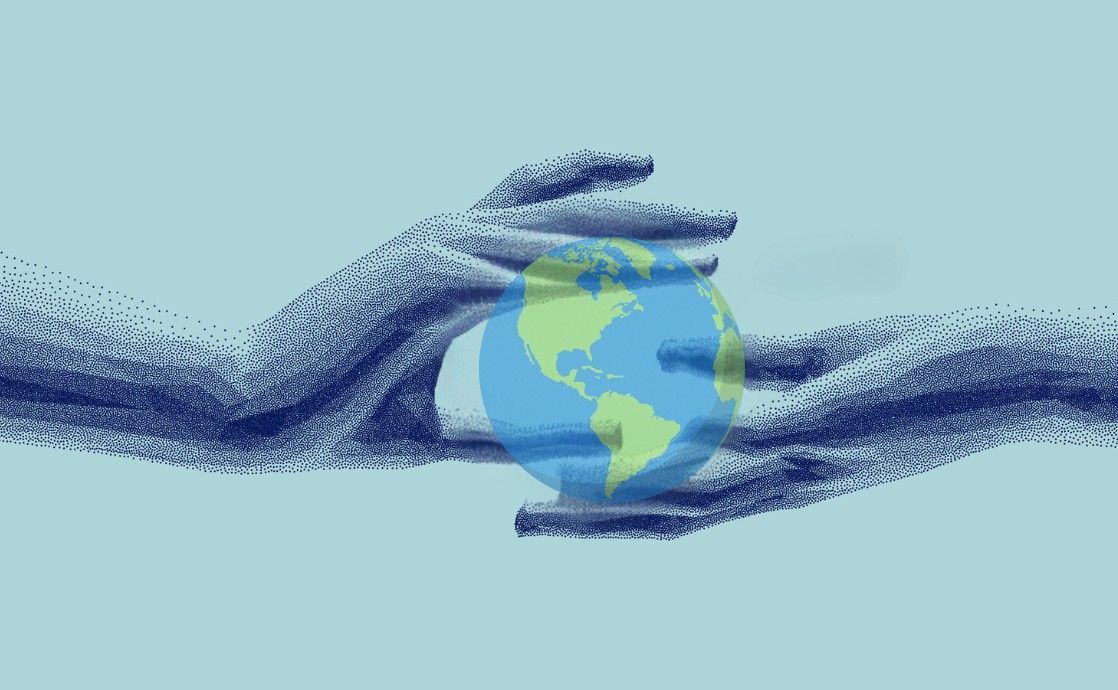In the annals of human civilization, there exists a profound calling for unity—a synthesis that transgresses geographical, ideological, and cultural boundaries. The Bahá’í teachings articulate a vision of a Universal Civilization, a paradigmatic shift towards the harmonization of the East and West. This notion is not merely a theoretical abstraction; it embodies a vibrant and dynamic approach to coexistence, where the essences of diverse cultures intermingle to forge a comprehensive societal tapestry.
To embark upon this journey, one must first acknowledge the inherent dualities that characterize our world. East and West have often been portrayed as opposing forces, akin to opposing sides of a coin. Yet, rather than divisive entities, they can be perceived as two distinct yet complementary elements of a greater whole. The Bahá’í teachings advocate for the integration of diverse cultural paradigms, positing that each possesses unique insights that can inform and enrich the other. This interchange cultivates an atmosphere conducive to innovation, creativity, and holistic understanding.
The historical doctrines of Eastern spirituality—rooted in profound philosophical inquiry, meditation, and communal harmony—correspond intriguingly with the Western intellectual tradition, characterized by empirical reasoning, individualism, and a pursuit of knowledge. This amalgamation acts as a crucible, wherein the nascent ideals of a Universal Civilization are nurtured. The Bahá’í perspective emphasizes the necessity of adopting an ecumenical viewpoint that transcends parochialism. This is an urgent appeal for humanity to embrace a more inclusive ethos.
The metaphor of a “bridge” serves as an apt representation of this synthesis. Just as a bridge spans a chasm, facilitating passage between disparate shores, the teachings of Bahá’u’lláh provide the foundational principles needed to traverse the ideological divides. Love, justice, and unity are the pillars upon which this bridge is built. It is in embodying these values that individuals can cultivate a sense of global citizenship, which nurtures empathy and understanding towards others, irrespective of their cultural backgrounds.
Education emerges as a pivotal mechanism in realizing the vision of a Universal Civilization. A refined and comprehensive educational framework—grounded in moral and ethical values—can endow individuals with the capacity to discern truth from falsehood, thereby fostering critical thinking. The Bahá’í teachings advocate for universal access to education, positing that the illumination of the mind is tantamount to the elevation of the spirit. The more individuals are educated about diverse cultures, histories, and philosophies, the more adept they become at integrating the wisdom gleaned from both Eastern and Western traditions.
This educational initiative aligns harmoniously with the Bahá’í commitment to the advancement of women and girls, who have historically been relegated to subordinate roles in many societies. By promoting gender equality and empowering women through education, the Bahá’í faith advocates a transformative approach that endows societies with the tools necessary for progress. A society that nurtures the potential of all its members—irrespective of gender—is primed to cultivate a potent and dynamic civilization that honors the contributions of every individual.
Furthermore, the concept of consultation is intrinsic to the Bahá’í way of life and is crucial for the scaffolding of a Universal Civilization. Consultation, when executed thoughtfully and inclusively, serves as a mechanism for collective decision-making wherein diverse perspectives converge. This process of collaborative dialogue engenders a culture of respect, fostering understanding and mitigating the inevitable conflicts that arise from differing viewpoints. It engenders not merely a consensus, but a deeper understanding of the multifaceted nature of truth itself.
Consider the metaphor of a symphony, wherein various instruments—each with its timbre and character—coalesce to create a harmonious composition. In a similar vein, the integration of diverse cultural elements fosters a spectacle of unity that celebrates individuality while producing a richer, more profound societal melody. The Bahá’í teachings assert that in forging a Universal Civilization, one must embrace diversity not as a challenge, but as an invaluable asset. This dynamism invigorates society, catalyzing innovation, creativity, and resilience in the face of global challenges.
As humanity stands on the precipice of unprecedented change—grappling with the complexities of globalization, technological advancement, and environmental degradation—the call for a Universal Civilization becomes increasingly salient. The Bahá’í teachings provide a roadmap to navigate these tumultuous waters, urging individuals and communities to cultivate a sense of unity that transcends superficial differences. In adopting an integrative approach, there exists an opportunity to merge wisdom from the East and the West, enriching the collective human experience.
In conclusion, the vision of a Universal Civilization, as delineated in Bahá’í teachings, beckons humanity towards a new dawn of possibility. It implores us to rise above the confines of our traditional narratives and embrace the multifaceted nature of our existence. By fostering connections, transcending divisions, and celebrating the wealth of human experience, society can blossom into a harmonious mosaic—a testament to what can be achieved when humanity collectively strives toward the ideals of love, justice, and unity. In this integrated reality, the potential for progress is boundless, as the myriad voices of civilization converge in harmonious discourse.
